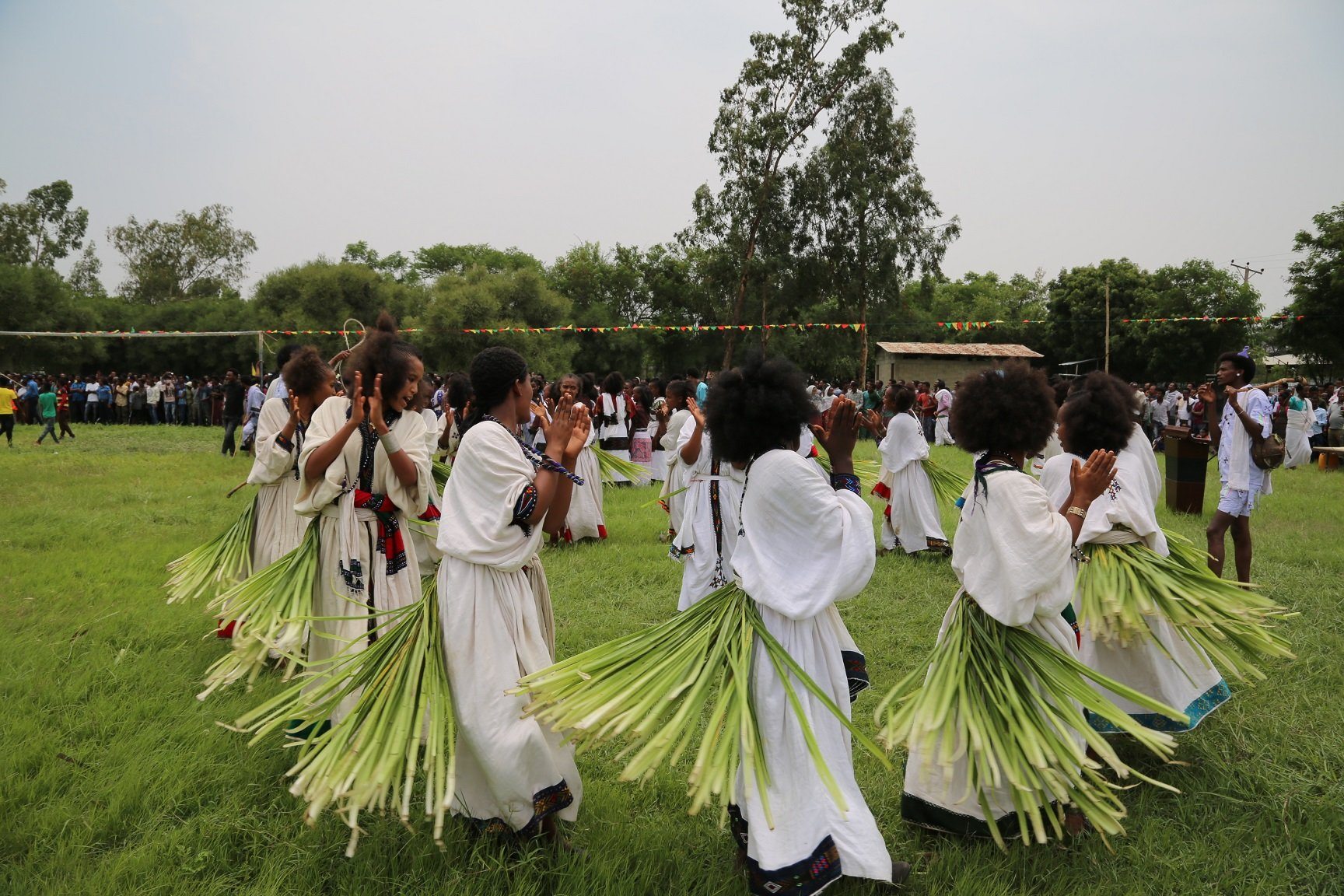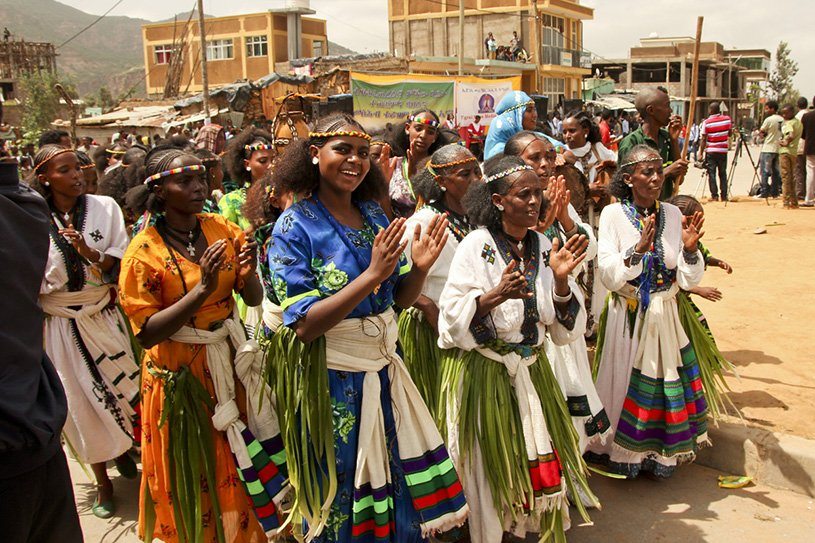To mark the end of a yearly 15-day fast called Filseta, the girls and young women in the northern parts of Ethiopia notably the Tigray ad Amhara regions celebrate Ashenda.
A festival uniquely reserved for girls and young women to showcase their elegance and beauty amidst drumming, dancing and singing.
The celebrations last between a period of three days to three weeks depending on the locality and it is between August and September.

Ashenda is name of a tall grass that is used to add to the aesthetics of the gowns adorned by the beauties during the festival.
Every girl wears a ‘tilfi’, a cotton dress embellished with embroidery right from the neckline to the hem of the dress. The girls wear braided styles that have been in existence through the years. They also add more jewelry together with the Ashenda grass to their outfits.

Fathers are known to be the main sponsors for the outfits worn by these girls. They buy special clothes for the festival and even pay for makeup services for them. Some say it is the best time for the single girls who are ready for marriage to be noticed by possible suitors.

Some girls cannot afford new clothes or ornaments for the festival. It is the norm to borrow clothes from their mothers or even sometimes neighbours for the celebration whether it is the best fit or not, because no girl should be exempted from the celebration.
Ashenda sometimes referred to as Shadey, Ashendye, Solel, Mariya is mainly held in Mekelle. At Mikelle the girls divide themselves into smaller groups but sometimes a group can have as many as 50 girls. Sometimes the older women join the girls in the celebration for solidarity sake.

These then give off their best dance moves amidst singing and drumming performing for people and moving from house to house to entertain and socialise with the community. The festival has evolved over the years to infuse orthodox faith traditions as well.
The music sang range from appreciating Ashenda to Christian songs mixed with love songs and songs that appreciate their beauty. The melodies to the songs have unique beat that would make anyone move along with the girls.

As a form of appreciation to the girls, they are showered with gifts in the form of money, food and drinks and this goes on throughout the festival.










